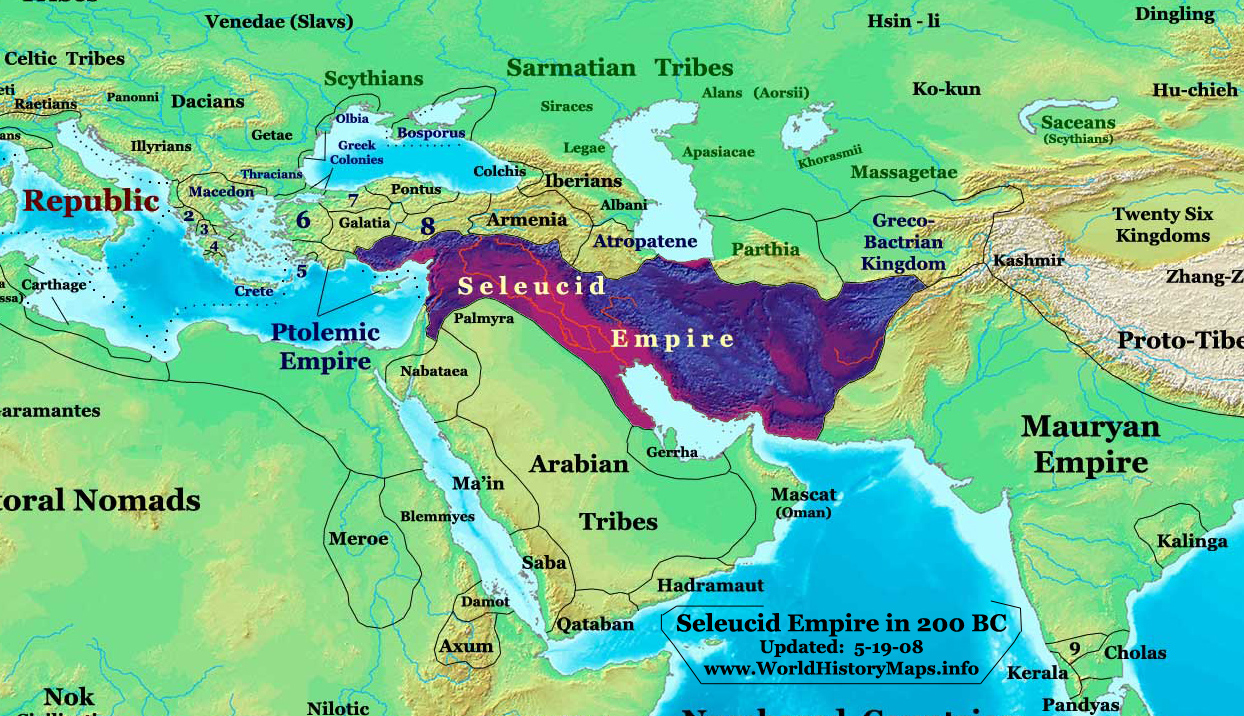The Empire of Alexander The Great
Alexander the Great became the leader of the Greek kingdom of Macedonia and had built an empire that stretched from Greece all the way to India. That brief empire-building campaign changed the world: It spread Greek ideas and culture from the Eastern Mediterranean to Asia.| The Empire of Alexander The Great |
“Hellenistic Period” (323 B.C. until 31 B.C)
Known as the “Hellenistic Period”, it lasted from the death of Alexander in 323 B.C. until 31 B.C., when Roman troops conquered the last of the territories that the Macedonian king had once ruled.
Following Alexander's death in 323 BC. His generals Ptolemy, Antigonus, Parmenion, Cassander, and Seleucus engaged in a bitter struggle to carve out personal kingdoms from Alexander's conquests. After 40 years of war, three major dynasties were settled on.
Following Alexander's death in 323 BC. His generals Ptolemy, Antigonus, Parmenion, Cassander, and Seleucus engaged in a bitter struggle to carve out personal kingdoms from Alexander's conquests. After 40 years of war, three major dynasties were settled on.
| Alexander's Empire was divided amongst his generals |
1 - Ptolemaic Empire
Ptolemy controlled Egypt and created a Ptolemaic dynasty that ruled Egypt until its absorption into the Roman Empire by Augustus in 30 B.C. |
| Ptolemaic Empire in 200 BC |
2 - Seleucid Empire
Seleucus created in the Near East a large empire, sometimes stretching as far as Iran and even India. |
| Seleucid Empire in 200 BC (before expansion into Anatolia and Greece) |
3 - Antigonid Empire
Finally, in Macedon the Antigonid dynasty ruled the smallest division of Alexander's Empire and had the most troubles from the start. The first founder of the Antigonid Dynasty was Antigonas, who gained control of Asia Minor after Alexander’s death. He attempted to reunite the empire under his own rule and declared himself king, but he was defeated and killed in 301 BC.After numerous battles with neighboring kingdoms and losses to Seleucus, the Antigonid Dynasty ended up hemorrhaging most of Asia Minor (Anatolia) and was considerably reduced in size.


No comments:
Post a Comment